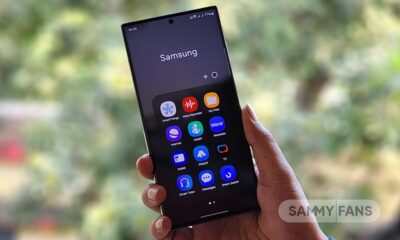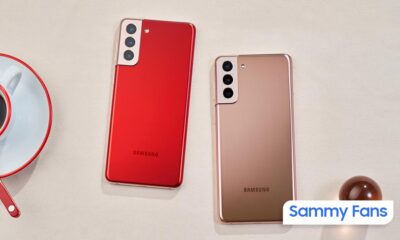News
Samsung-Webex teams up to enhance meetings on Galaxy S23 and Z Fold 4
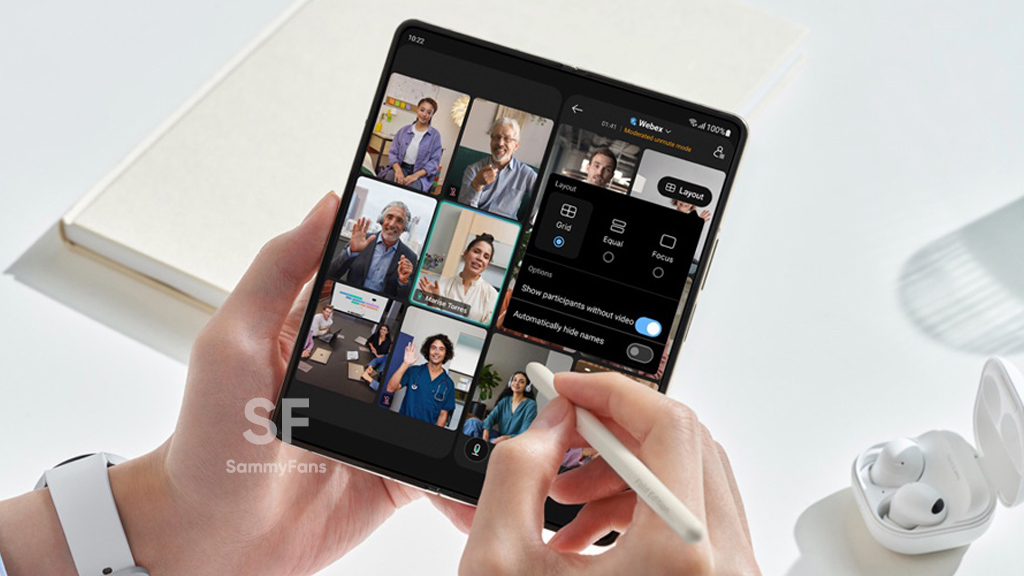
Samsung and Webex by Cisco integrated to help the hybrid team to get more out of virtual meetings and team collaboration. At the Mobile World Congress (MWC) 2023, Webex announced that its Meeting app provides seamless user experiences with integrated mobile technology.
You can increase productivity by using the Webex meeting app on the latest flagships including the Galaxy S23 and Galaxy Z Fold 4. Exciting features of Webex and Samsung mobile technology integration include Mobile Camera Share for Galaxy S23 and optimized collaboration experiences for Galaxy Z Fold 4.
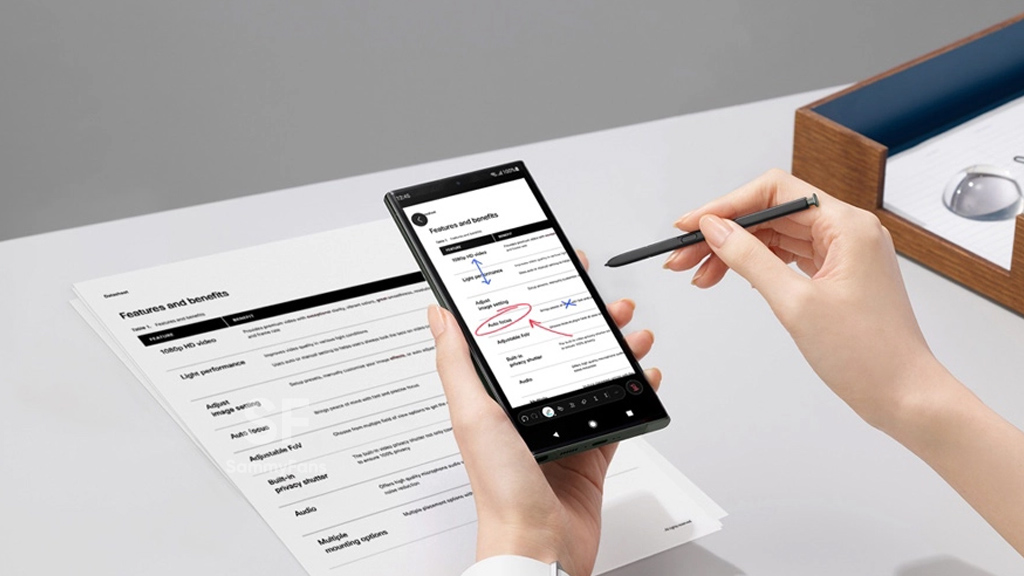
With the interactive capabilities of Samsung devices combined with advanced features of Webex meetings including mobile camera sharing, multi-sharing methods, picture-in-picture, and whiteboards, users can now enjoy unprecedented flexibility in working on the go.
Mobile Camera Share
Mobile Camera Share combines the industry-first Webex feature with the high-quality video capture, zoom, and stabilization of Samsung devices. It is a tool that facilitates more interactive and engaging discussions.
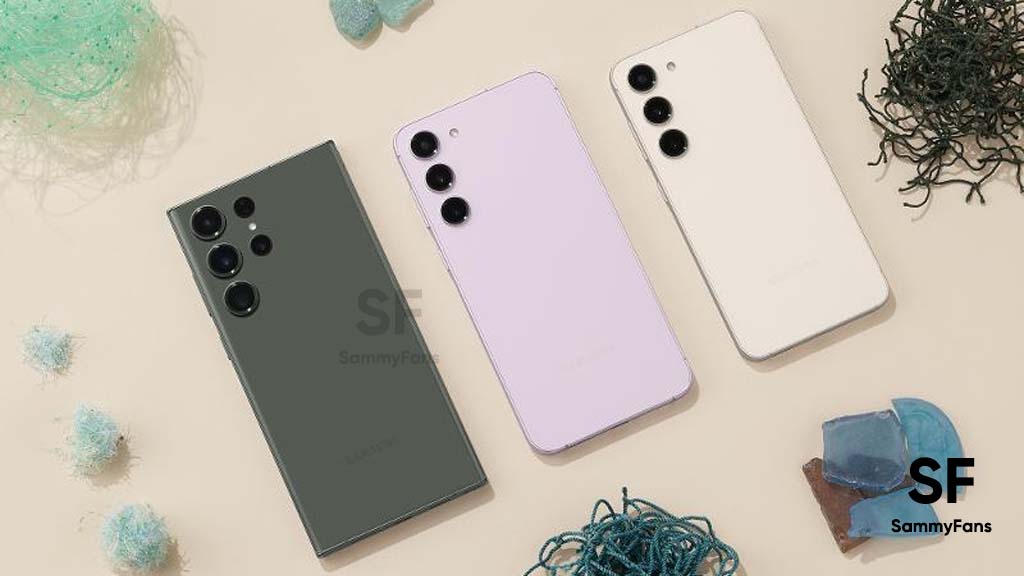
With Mobile Camera Share on Webex Meetings, Samsung mobile users can share their live mobile camera feed with remote Webex participants as focused meeting content to annotate, co-create and share ideas.
You can use Webex to view job site progress with customers in real-time, writing, dragging, and adding shapes on shared video feeds instead of relying on static images or screenshots. It is also helpful for Healthcare IT industries.
Smart and Productive work with Samsung’s flexible screen
Webex Meetings now supports secure and flexible hybrid work collaboration optimized for the foldable experience on the Samsung Galaxy Z Fold 4. Users can view up to 12 people on the same screen when laid flat in tablet mode, or can choose to twist at an angle to view people and content at the same time for multitasking.
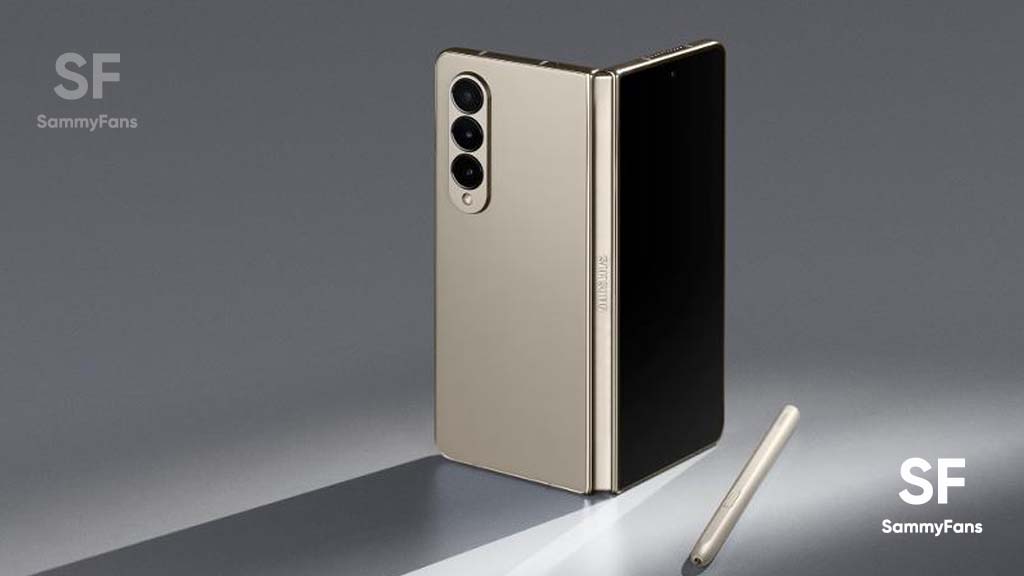
These flexible modes of the Galaxy Z Fold 4 give employees more options in a hybrid setup and eliminate the need for multiple mobile devices.
News
Samsung Galaxy A55 and A35 are official smartphones for FFWS Brazil 2024
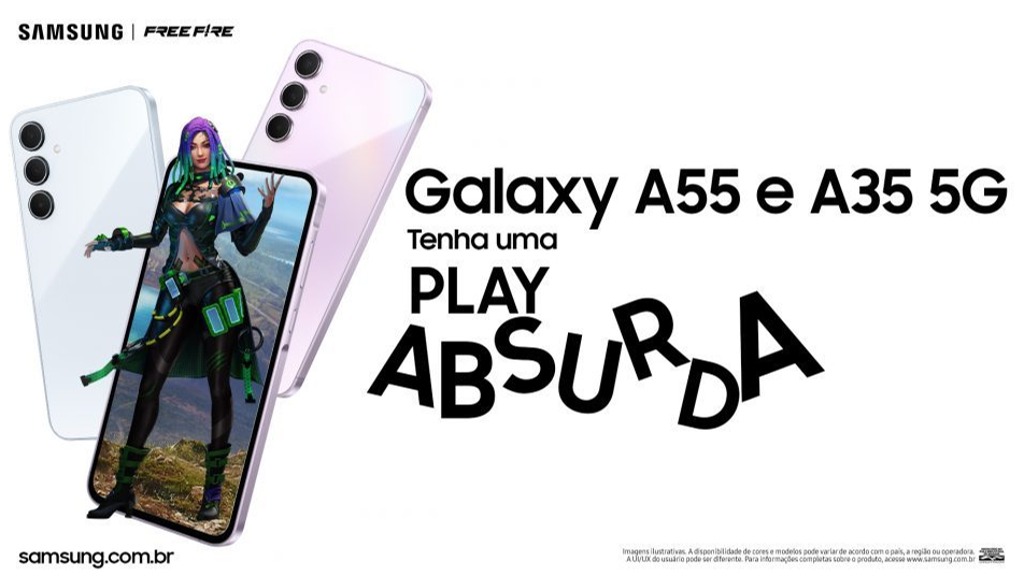
Samsung is sponsoring FFWS Brazil 2024 and announced the Galaxy A55 and Galaxy A35 as official smartphones. Samsung and Free Fire maker Garena will celebrate the partnership with in-game skins, with both official phones will be featured during the tournament broadcasts.
FFWS Brazil is the premier Free Fire championship that is divided into two states and features 18 Brazilian teams. Meanwhile, the Free Fire World Series Final Global 2024, which is the grand final of the world championship, will take place in November.
Samsung’s Galaxy A55 and A35 deliver the core Galaxy experience to a wider audience. The phones feature 6.6-inch sAMOLED displays, offering stunning HD clarity. New Exynos chips with enhanced GPU and NPU, as well as vapor chamber cooling, make it easy to enjoy your favorite games.
Apart from this, the South Korean tech giant announced the Galaxy S24 Ultra is the official smartphone of FFWS BR 2024 for its advanced gaming experience, offering the ideal specifications to enjoy the latest releases in the best possible way.
Garena Free Fire
- It is a mobile game that brings together up to 50 players to compete in a match against each other. The last one standing wins, the Booyah!
- Safe Zone gradually shrinks during the match, forcing players to constantly move around to confront each other in increasingly smaller spaces.
- The dynamism of each match increases the intensity and excitement of the battles until only one winner remains.
Stay up-to-date on Samsung Galaxy, One UI & Tech Stuffs by following Sammy Fans on X/Twitter. You can also discover the latest news, polls, reviews, and new features for Samsung & Google Apps, Galaxy Phones, and the One UI/Android operating system.
Do you like this post? Kindly, let us know on X/Twitter: we love hearing your feedback! If you prefer using other social platforms besides X, follow/join us on Google News, Facebook, and Telegram.
News
Samsung Galaxy S24 Ultra blows away Huawei Pura 70 Ultra with anti-reflective screen
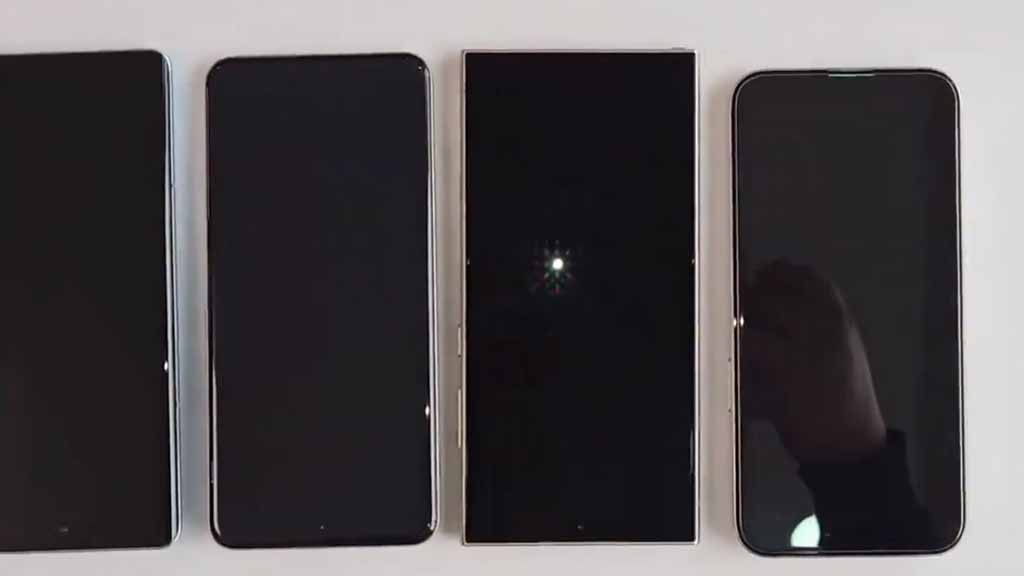
Samsung Galaxy S24 Ultra supremacy continues with its one-of-its-kind anti-reflective screen. Huawei Pura 70 Ultra was in the headlines following the launch but failed to impress when compared to Samsung’s Galaxy S24 Ultra among others.
IceUniverse posted a video showcasing the screen reflection on many flagships. The video displays the light reflection impact on the screens of OPPO Find X7 Ultra, Huawei Pura 70 Ultra, vivo X100 Pro, Xiaomi 14 Ultra, Galaxy S24 Ultra, and iPhone 15 Pro Max.
Huawei Pura 70 Ultra brings an innovative camera tech, but the lack of an anti-reflective screen can’t be filled with it. Apple also lags behind Samsung in terms of the most stunning screen visibility, and this trend might not be ending anytime soon!
The embedded video showcases the flashlight reflection on panels of all the tested smartphones. Apple’s iPhone 15 Pro Max and Chinese flagships including Huawei Pura 70 Ultra failed to reduce the glare of the flashlight, which the S24 Ultra significantly declined.
When tested without a flashlight, the Galaxy S24 Ultra again proved superior among all. Thanks to Corning’s exclusive glass, the OLED offers vibrant colors at full capacity. At the same time, rivals look to producing faded colors, which isn’t an OLED fault, but glass’.
OPPO Find X7 Ultra,HUAWEI Pura70 Ultra,vivo X100 Pro,Xiaomi 14 Ultra,Galaxy S24 Ultra,iPhone 15 Pro Max pic.twitter.com/9JCXeF2sYw
— ICE UNIVERSE (@UniverseIce) April 19, 2024
Samsung and Corning partnered to develop the Gorilla Armor glass. The Galaxy S24 Ultra is the only smartphone that boasts anti-reflective glass tech, which reduces reflectance by up to 75%, enhances display readability, and minimizes screen reflection.
Stay up-to-date on Samsung Galaxy, One UI & Tech Stuffs by following Sammy Fans on X/Twitter. You can also discover the latest news, polls, reviews, and new features for Samsung & Google Apps, Galaxy Phones, and the One UI/Android operating system.
Do you like this post? Kindly, let us know on X/Twitter: we love hearing your feedback! If you prefer using other social platforms besides X, follow/join us on Google News, Facebook, and Telegram.
News
Galaxy F15 launches with RAM equal to Samsung’s S24 flagship

Samsung silently listed Galaxy F15 5G’s 8GB RAM variant in India. The company previously released the device in 4GB and 6GB RAM options, featuring 128GB storage. The latest release brings a third option to the F15 5G, while the memory segment remains unchanged.
As for the 8GB F15 5G, Samsung authorized retailers to sell it for INR 15,999 (~$191 or €179). Utilizing the launch offer, consumers can avail of a discount of INR 1000 (as bank cashback or upgrade bonus). Key specs are mentioned at the bottom of the post.
When Samsung launched the Galaxy S24 with 8GB RAM, it was criticized by consumers globally. Since then, the company has been given regular chances to get mocked. The Galaxy M55 5G is available in up to 12GB RAM, beating the S24 flagship’s 8GB.
There may be differences in technology, but, the larger the RAM, the smoother the device performs. As the F15 5G is here with 8GB RAM, it matched the S24 flagships costing INR 80,000 in India. Well, we hope, the next-gen flagships should have at least 12GB RAM.
Galaxy F15 5G Key Specs:
- 8GB RAM, 128GB memory
- 6.6-inch sAMOLED display with 90Hz refresh rate
- MediaTek Dimensity 6100+ SoC
- 50 MP main, 5 MP ultrawide, 2 MP macro | 13 MP selfie snapper
- 6,000 mAh battery with 25W charging
- Android 14-based One UI 6
Stay up-to-date on Samsung Galaxy, One UI & Tech Stuffs by following Sammy Fans on X/Twitter. You can also discover the latest news, polls, reviews, and new features for Samsung & Google Apps, Galaxy Phones, and the One UI/Android operating system.
Do you like this post? Kindly, let us know on X/Twitter: we love hearing your feedback! If you prefer using other social platforms besides X, follow/join us on Google News, Facebook, and Telegram.

